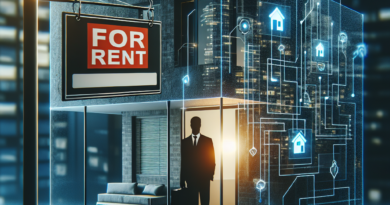Home appliance repairs in a rented house, who has to pay?
Appliances are to all intents and purposes an integral part of the home and its functionality and necessarily involve costs for replacement and repair.
If the owner himself lives in the property, there is no problem in this regard, obviously he will have to personally take care of the expense and will have full decision-making in this regard.
When the house is rented, however, there is no univocal regulation, but it is necessary to distinguish between the furnished rented property and the empty one, as well as considering any clauses in the rental contract.
Here's who has to pay depending on the case.
The rental contract The law provides some rules on the distribution of costs between owner and tenant which, in the specific case of household appliances, vary whether the property was furnished or not at the time of rental.
Before knowing the relevant laws, however, it is important to underline that the rental contract can derogate from the regulations if the parties agree.
In the event that an appliance breaks and you are uncertain about the responsibility for the repair costs, therefore, the first thing to do is to check the signed contract and carefully read any clauses.
If the regulations in this regard are specified then it is necessary to comply with what is reported and divide the payment according to what has been agreed, otherwise – in the absence of specific clauses – the legal regulations apply.
read also Do the expenses incurred on the rented house have to be reimbursed by the owner? Furnished property for rent The regulation of expenses relating to movable property such as household appliances present inside the furnished house for rent is established by article 1576 of the Civil Code, according to which the tenant is entitled to the costs of conservation and ordinary maintenance.
The owner will instead have to take responsibility for replacing the unusable appliance, unless this is due to misuse made by the tenant.
The repair of household appliances is part of ordinary administration costs as it concerns the use of the same and their conservation, therefore it must be paid by the tenant, unless the rental contract specifies otherwise.
On the contrary, when it is necessary to completely change the appliance due to age or repair it due to a sudden breakdown, this cost is borne by the homeowner.
Let's give some examples.
The dishwasher is now dated and does not work properly and must be replaced by the landlord.
The washing machine broken due to incorrect use by the tenant who inserted inappropriate objects must be repaired by the tenant himself.
If the appliances break for unforeseeable reasons, such as an earthquake or lightning, the costs for repair and replacement are the responsibility of the landlord.
Obviously, the appliances part of the rental contract are referred to as furnishings of the property.
Any appliances added by the tenant, however, must be repaired and replaced taking into account their extraneous nature.
Also in this case it is therefore necessary to check the rental contract and check that the faulty appliance was part of the lease.
read also House for rent, who pays for the air conditioner? Renting a house without furniture If the house is rented without furniture, the homeowner has no responsibility for the appliances.
The same principle applies to all those assets added by tenants that are not part of the rental contract of a furnished house, but also to assets transferred by the owner without leasing.
In fact, it is not uncommon for the homeowner to directly sell the appliances already present in the rented property or sometimes to give them away free of charge.
In these cases the appliances are not part of the lease; therefore, all maintenance costs are borne exclusively by the tenants, unless there are contractual clauses to the contrary (rather unlikely).
Finally, there is an exception valid both for furnished and empty houses, i.e.
the cases in which the failure of the household appliances is due to the fault of the owner who did not carry out extraordinary maintenance on the electrical or plumbing system.
More specifically, in these cases the tenant has the right to compensation or reimbursement of the expense incurred.
read also When you can not pay the rent




